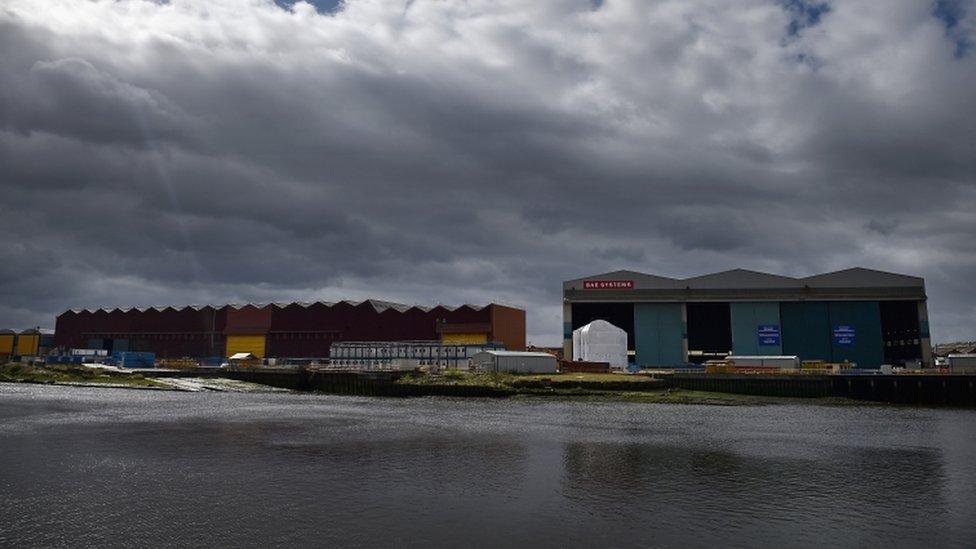Royal Navy warships 'kept beyond sell-by date'
- Published
- comments
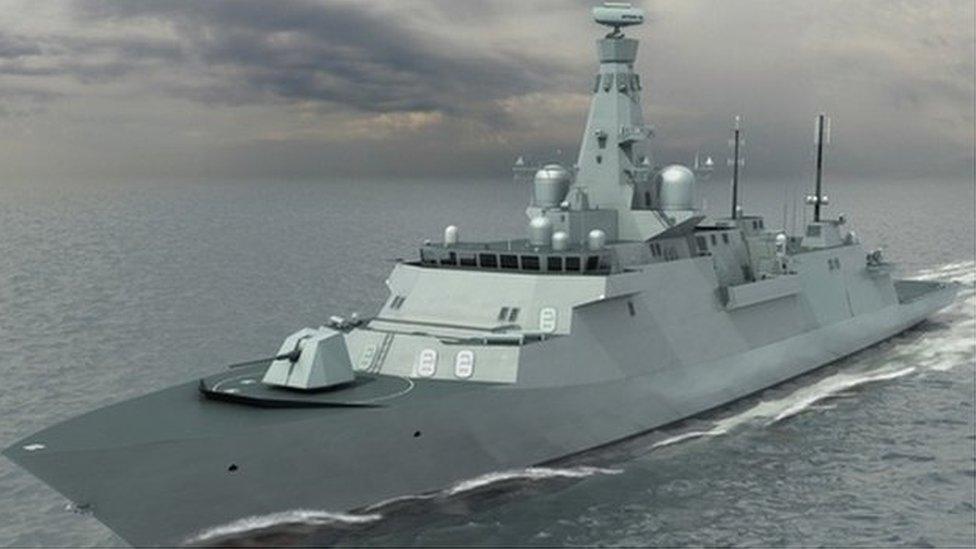
A Type 26 frigate of the class which from next summer will be built on Clydeside
Royal Navy ships are being kept in service "well beyond their sell-by-date", an independent report has said.
Sir John Parker said, external new ships were also being ordered too late, creating a "vicious cycle" which was depleting the fleet and wasting taxpayers' money.
He said Navy contracts should be shared among companies across the UK to cut build time and spread prosperity.
The defence secretary said that approach had already proved successful in building new aircraft carriers.
Sir John's warnings echo those of the Commons defence select committee last week, which warned that Britain's defences were at risk amid uncertainty over plans to replace the "woefully low" number of warships.
What could this mean for jobs on the Clyde?
Sir John, chairman of mining giant Anglo American, was tasked by the government with examining how the British naval shipbuilding industry could be made sustainable while increasing exports.
He recommended the government should:
Oversee the design and specification of Royal Navy ships so they are delivered within a set budget and on time
Design ships suitable for both the Navy and the export market
Spread the building of components for new ships across the UK
Maintain Royal Navy fleet numbers over the next decade by urgently building the Type 31e general purpose frigate
Use the Type 31e fleet as a lead project to implement the review recommendations
The First Sea Lord, Admiral Sir Philip Jones - head of the Royal Navy - welcomed the report's recommendations about shipbuilding, saying Sir John had recognised the "latent potential" and "capacity" in the wider UK ship building sector.
The Royal Navy now has an "hugely ambitious growth agenda for the first time in a generations", he told the BBC, with an increased defence budget and the opportunity to grow the Navy.
"That is a hugely ambitious and optimistic place to be and I am determined to make sure that right across the nation people recognise that their Navy is ready respond to that and grow in an appropriate way, and I think that is good news," he added.

Admiral Sir Philip Jones welcomed the report's recommendations
Sir John's review called for "pace and grip" from the government to capitalise on what he called a renaissance in shipbuilding in regional commercial yards.
Distributing work on new vessels to several locations would reduce the "cycle time of actual construction" which was a "very important part of competitiveness".
Sir John, a former chairman of Belfast-based Harland and Wolff shipbuilding group, found that BAE Systems' UK monopoly on building naval warships for the MoD had led to "gaps in the industrial programmes" at the shipyard which led to inefficiencies and added costs.
He said the government should look to "harness the economies available within the wider UK shipbuilding supply chain to seek improved value for money".
Earlier this month, Defence Secretary Sir Michael Fallon announced that eight larger Type 26 frigates would be built by BAE on the Clyde in Glasgow from next summer.
But he has not confirmed whether Type 31 frigates will be built there.
Sir John told the BBC the Type 31 vessels should be "built in the most competitive way".
He went on: I think our investigation shows that probably the lowest cost and the fastest time of build can be done by building it in a distributed way across the country and also, of course, distribute prosperity and highly skilled jobs."
'Worrying delays'
To date, there had been limited national effort placed on exporting ships and designs were not tested for a foreign market, Sir John said.
New Type 31 frigates should have a modern standard design which could be customised to suit both the Royal Navy and the export market, he recommended.
The defence secretary said Sir John had provided a "fundamental reappraisal of how we undertake shipbuilding in the UK".
He said that while there was already a "vibrant" shipbuilding sector in Scotland, there were significant opportunities to widen the base.
The government will publish its formal response in the spring, but Sir Michael added: "This report will inform our national shipbuilding strategy to match the needs of the Royal Navy with the ability to design and build efficiently, maintain skills, and maximise export opportunities."
The Royal Navy currently has 19 frigates and destroyers but the MPs said that number could fall unless a clear timetable is set out for replacing older vessels.
SNP defence spokesman Brendan O'Hara said the UK government must now end "unnecessary and worrying delays" in bringing forward a national shipbuilding strategy.
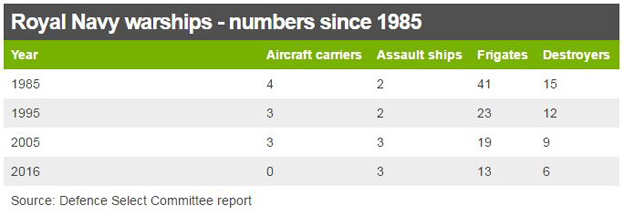
- Published21 November 2016
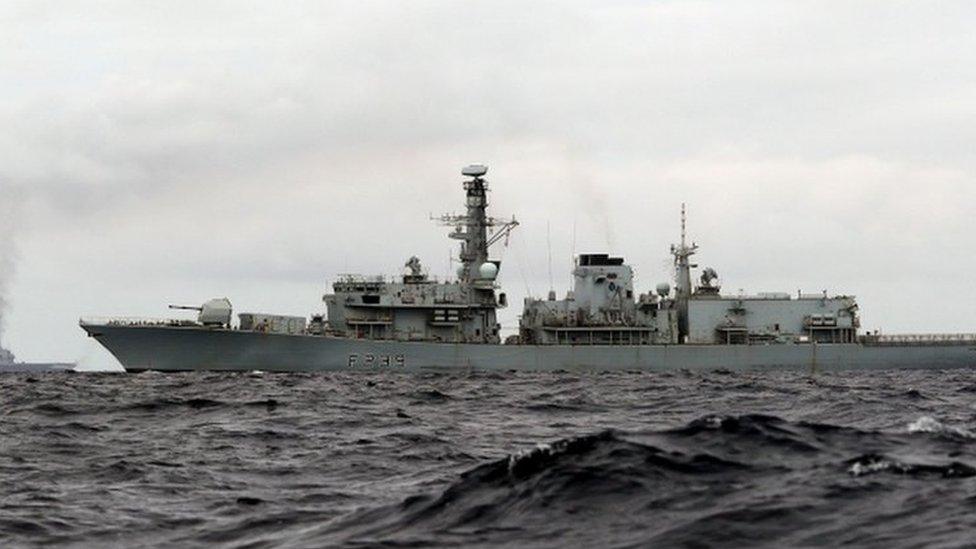
- Published4 November 2016
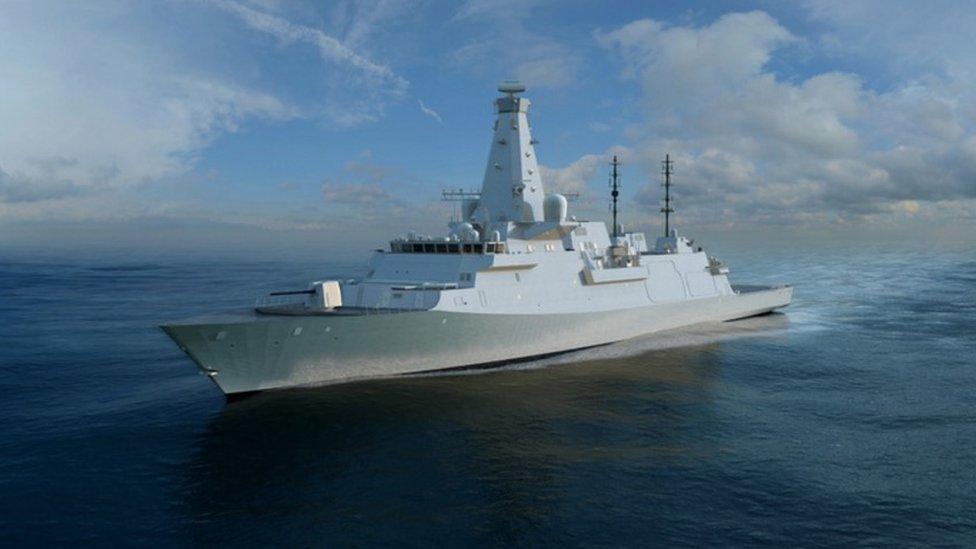
- Published4 November 2016
- Published7 June 2016

- Published25 April 2016

- Published25 April 2016
